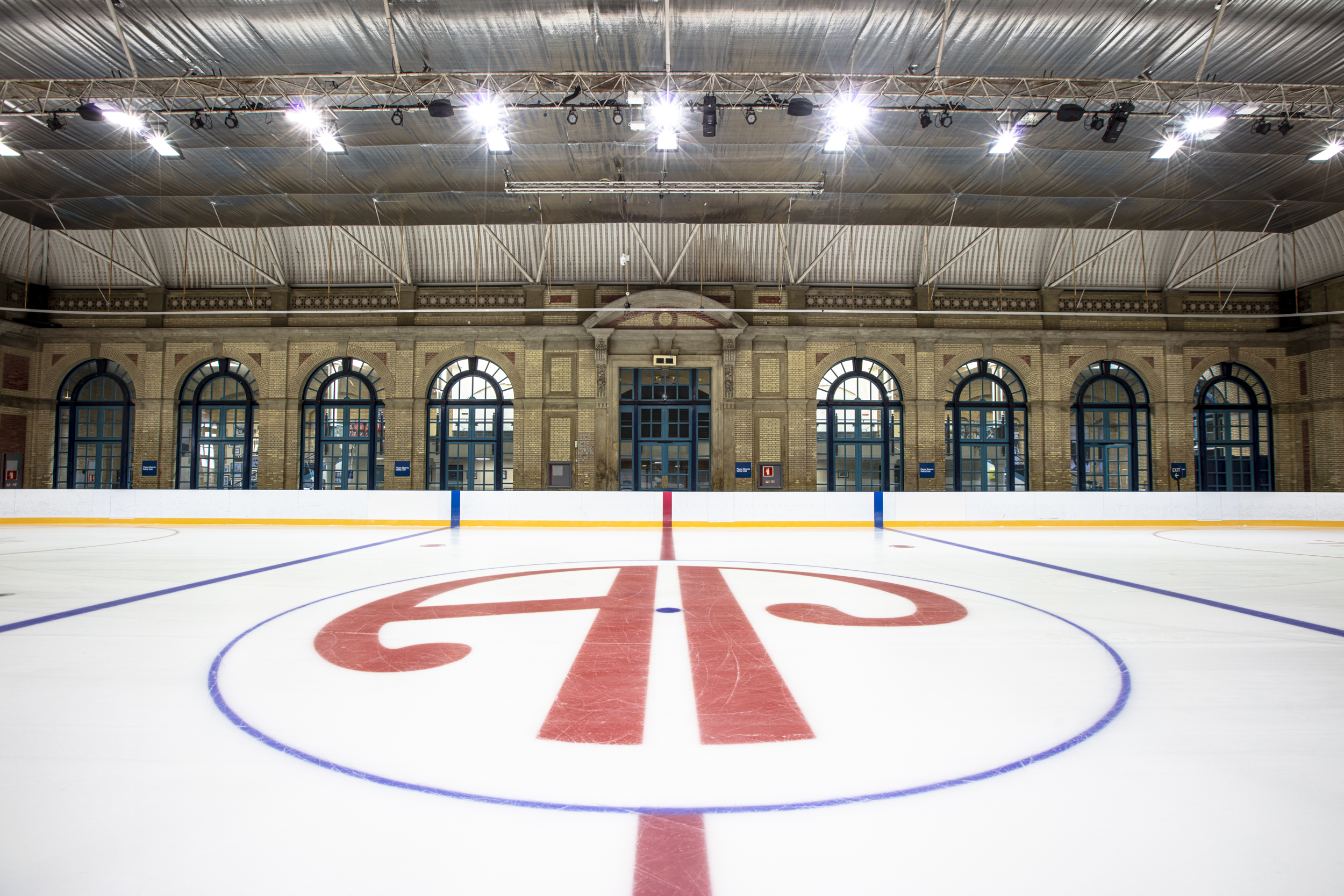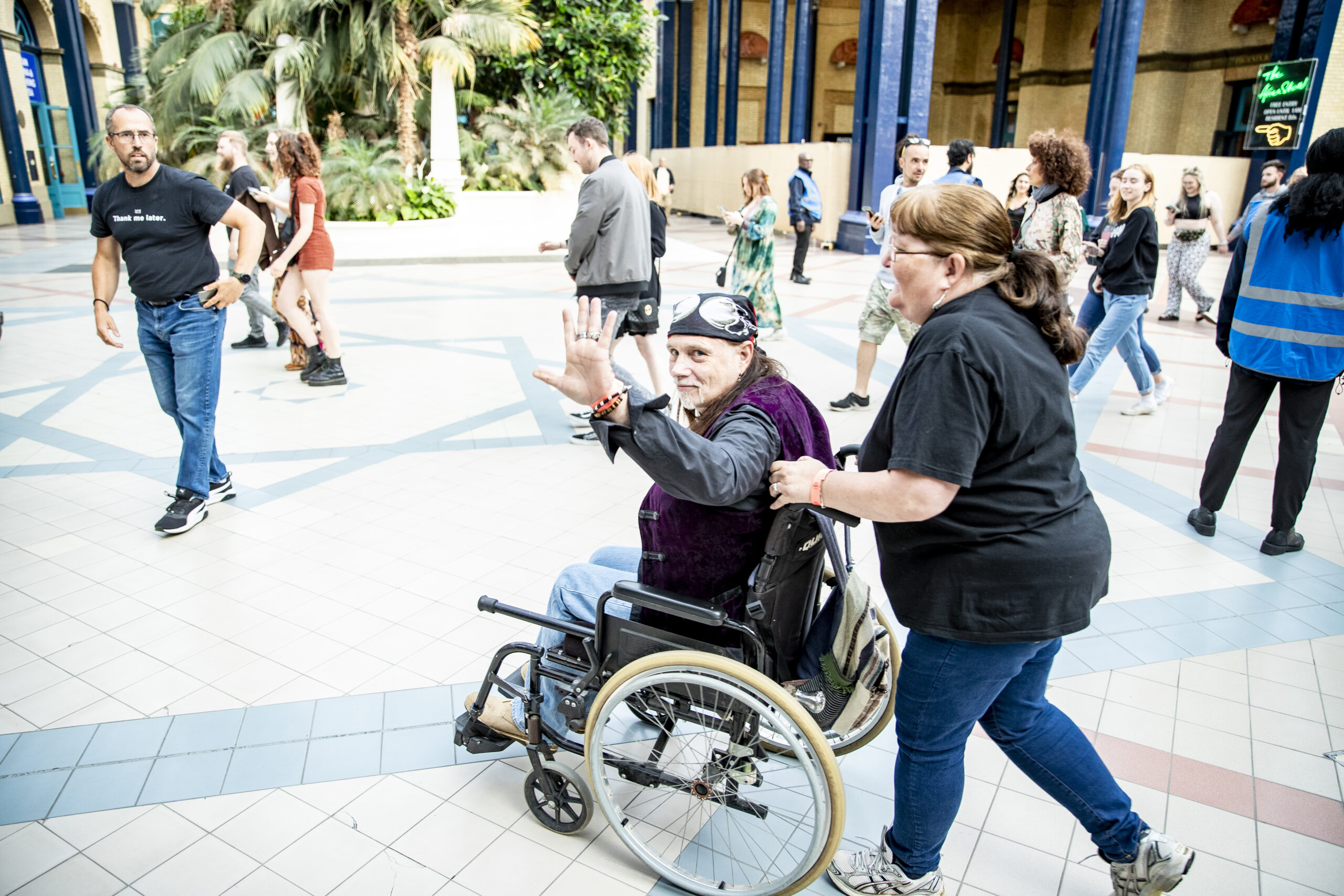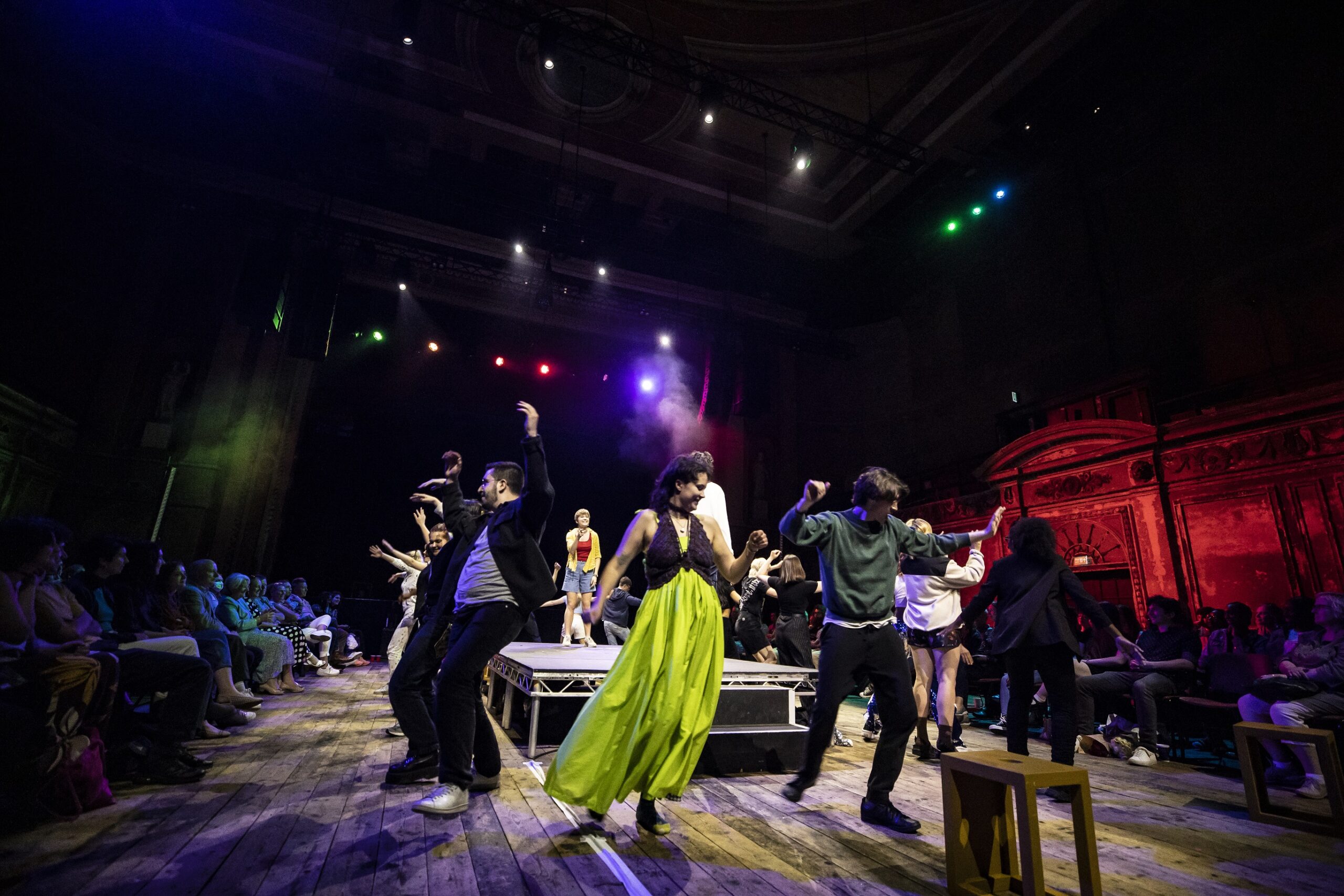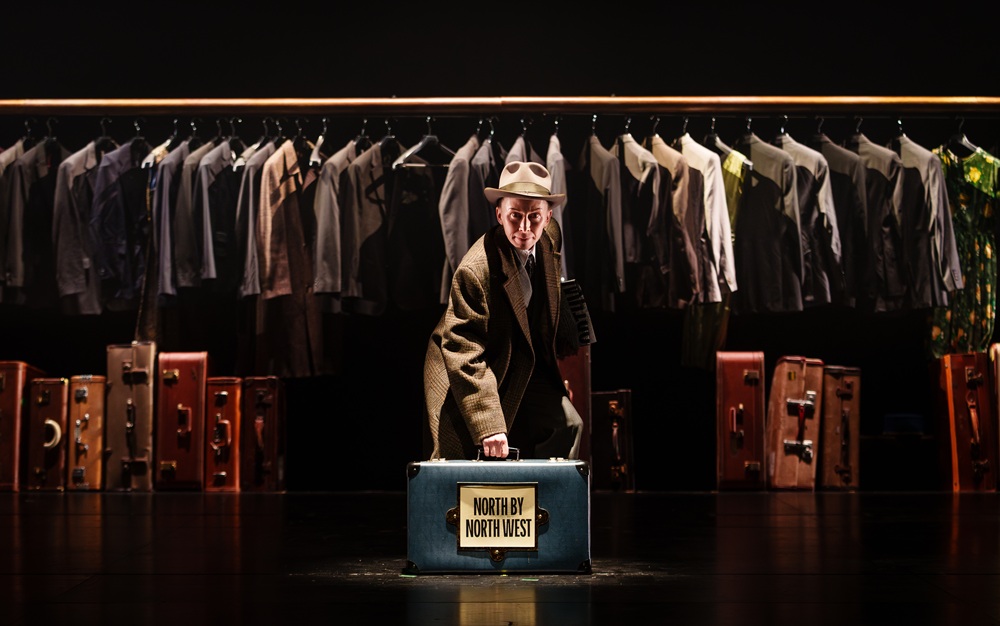During lockdown the Palace has handed over use of its kitchens to charity Compassion London, who are supporting some of the most vulnerable people across London. This is their story:
When the world shut down in March, chef Leon Aarts knew that for many, lockdown wasn’t a self-development opportunity. With canteens and cafés closed for an indefinite amount of time, and the supermarkets beset by stockpilers, hundreds of people across London – including many of the medical staff working on the front lines of the crisis – were going to find themselves suddenly unable to eat.
In 2015, Leon set up Calais Kitchen, a project that provided food for refugees living in the camp known as the ‘jungle’. He decided to put that expertise to work, and with the help of some friends and about seven volunteers, set up the first version of Compassion in a small kitchen in North-West London.
That was back in late March, when many thought the crisis would be over by the summer. Five months later, Compassion London is bustling with over 400 volunteers.
From the kitchens underneath Alexandra Palace, the team of chefs, organisers, helpers and drivers provide thousands of meals a day. They recently hit a milestone of 350,000 delivered.
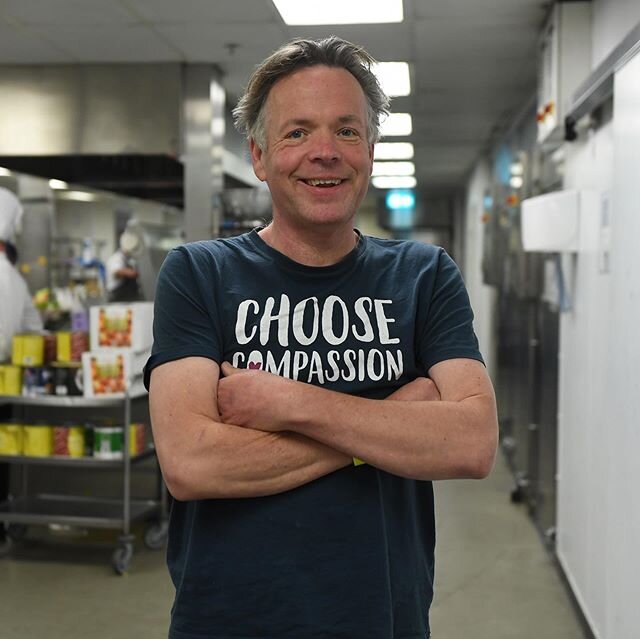
(Leon Aarts)
Ally Pally is a relatively new home. Compassion’s first formal kitchen was at Allianz Park, but they quickly found it wasn’t big enough to fulfil the increasing demand. After about a month, the team moved to Wembley, where, with the help of the Stadium’s in-house chefs, they were able to up their output, nearing a goal of 20,000 meals a day. But before that could happen, the government announced that sporting events were back in play – and they had to find somewhere new fast.
The People’s Palace stepped up. Compassion’s volunteers are in every day from 8 to 5, playing music and chatting while they chop, fry, boil, bake, pack and send off meals.
One volunteer, Becky, said that Compassion had been the ideal way to put her spare lockdown time to good use. “I love coming in and meeting people,” she said. “It’s much better than sitting at home watching TV. Food waste and hunger are problems that I’ve always cared about, too, so Compassion was an opportunity to combine everything.”
“Now I come in every day and it’s just the most amazing feeling, seeing thirty or thirty-five beautiful people, all working together to help others” says Naomi Clucas, a volunteer from the beginning.
The meals range from salad and frittata to pasta’s, stews and curries, all delivered to a variety of organisations that distribute them in their local communities. That includes religious groups, food banks, and even a motorcycle club that gives out food to the homeless. Meals are made from ingredients donated by organisations including Ocado and the Felix Project, which would otherwise go to waste.
With increasing lay-offs, the government’s furlough scheme on its way to ending and the future more uncertain than ever, Leon’s plans for Compassion to have shut shop by the summer seem a distant memory.
“There’s a lot of uncertainty about what’s going to happen with the virus,” he said. “It’s likely that the demand for meals will increase even further. At the moment we do 10-11,000 meals a week, and we easily find recipients for them.”
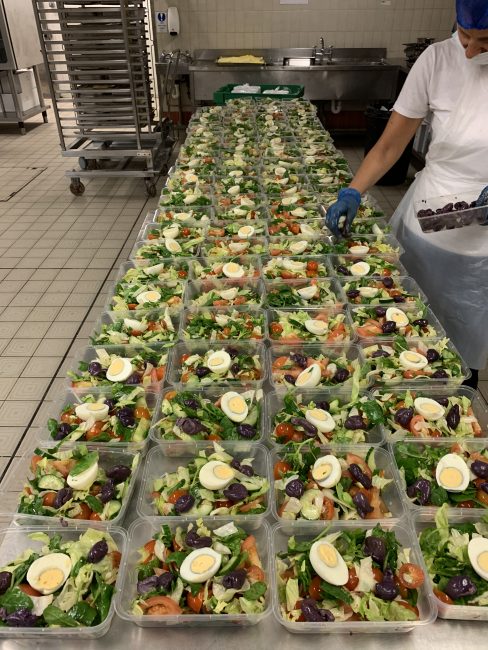
So now, while some of our volunteers have gone back to work, we’re flexing our time slots and want to encurage those who haven’t visited for a while to come back in, as well as inviting new volunteers from the surrounding area to come and join our family even if it for just a couple of hours per week: Compassion is, after all, a collaborative effort, and dependent on the time and energy people are willing to give up to help others in their city.
“We want to be here for those who need us now,” he says, “but we also want to build something lasting for the future.”
Compassion London is in need of volunteers and donations. If you’d like to help, visit www.compassionlondon.org or email info@compassionlondon.org.
